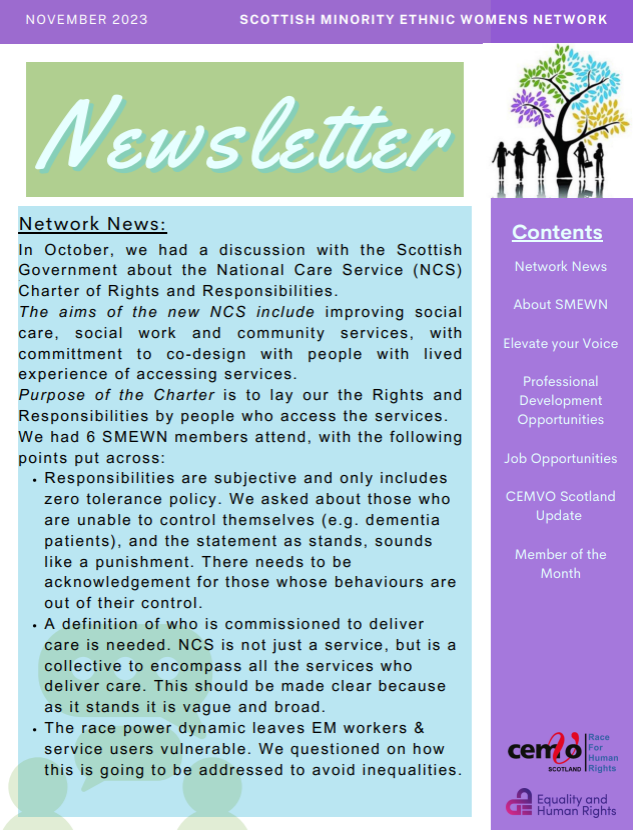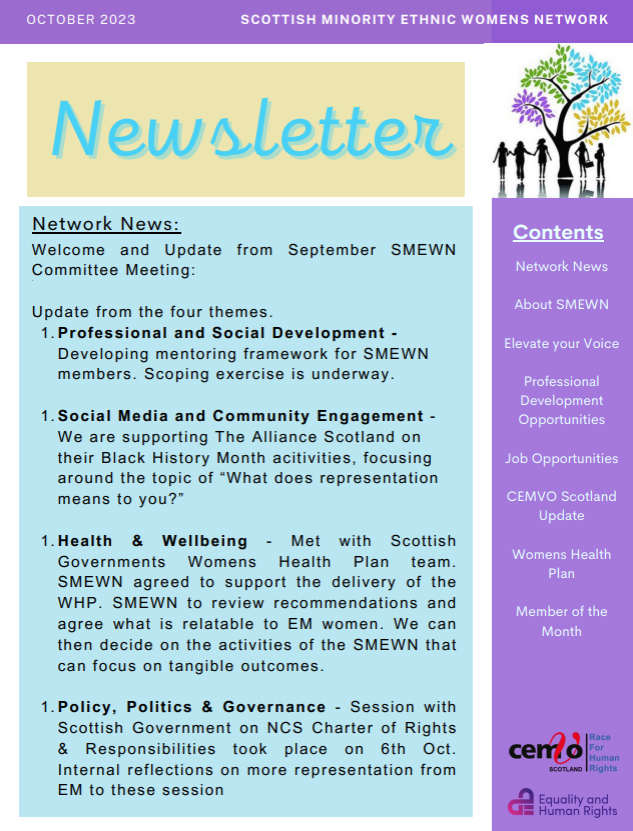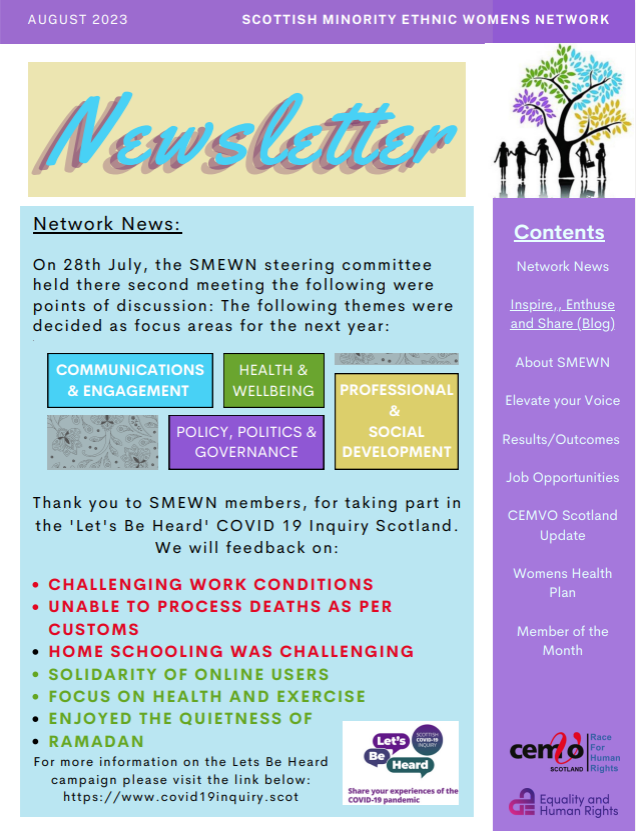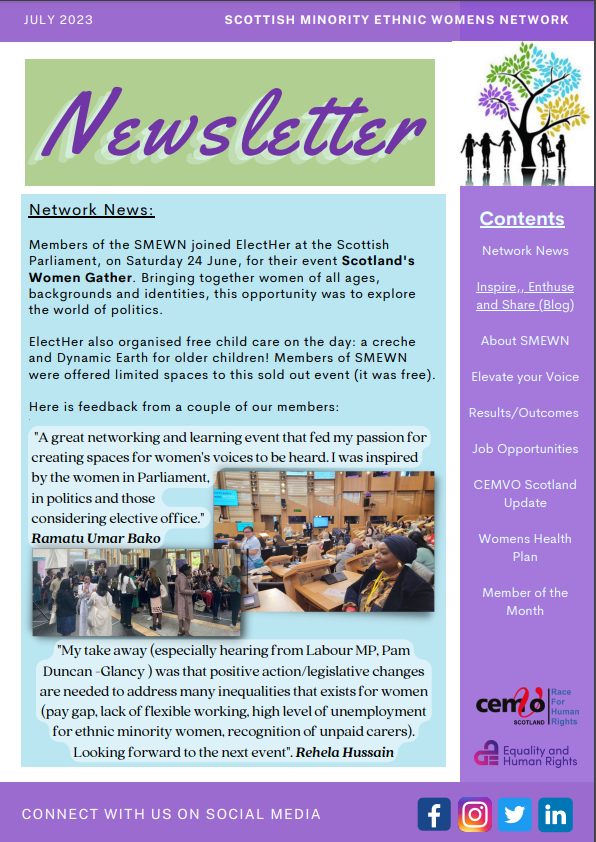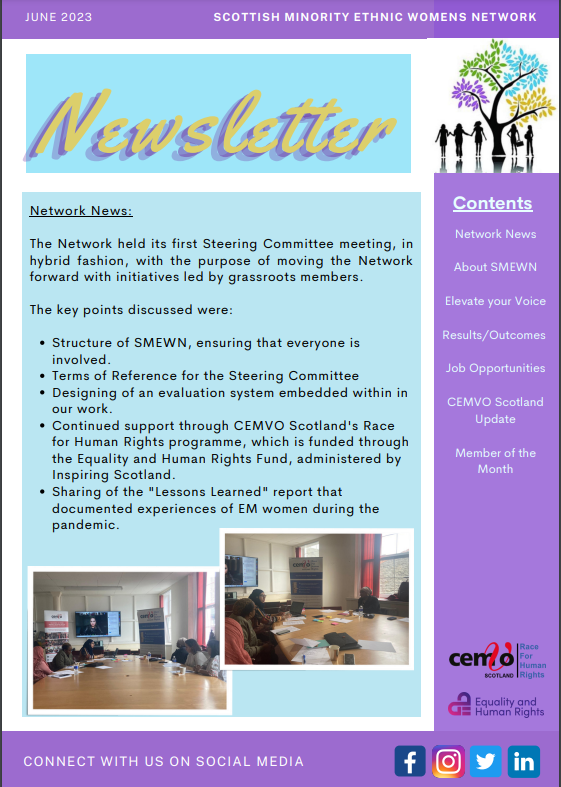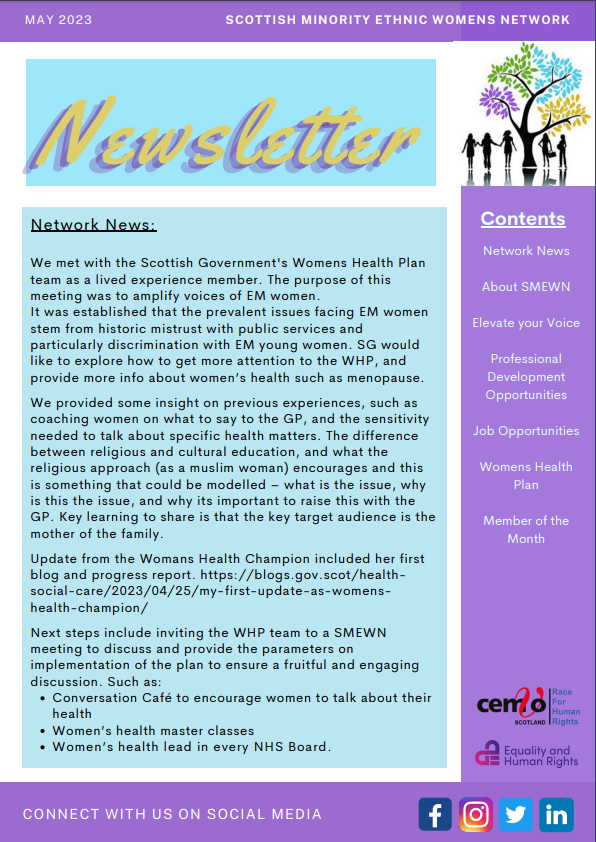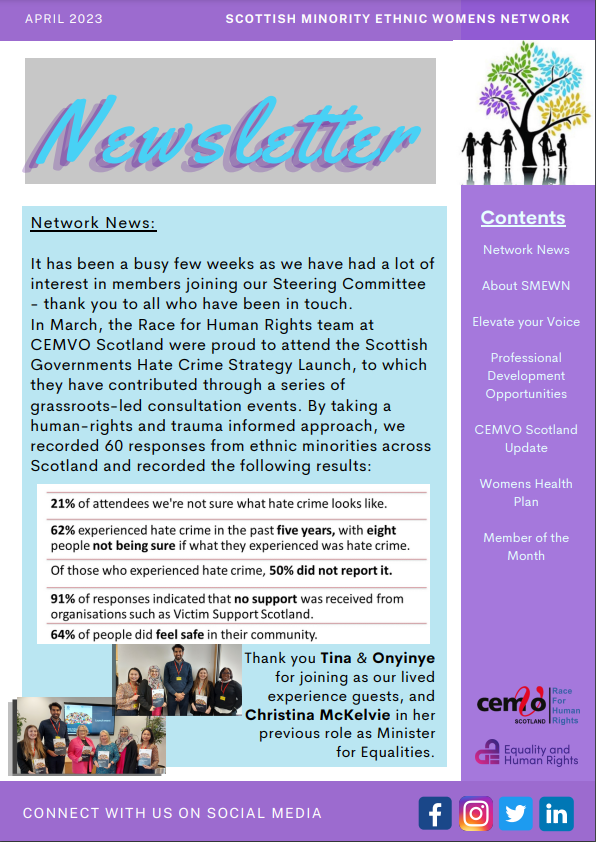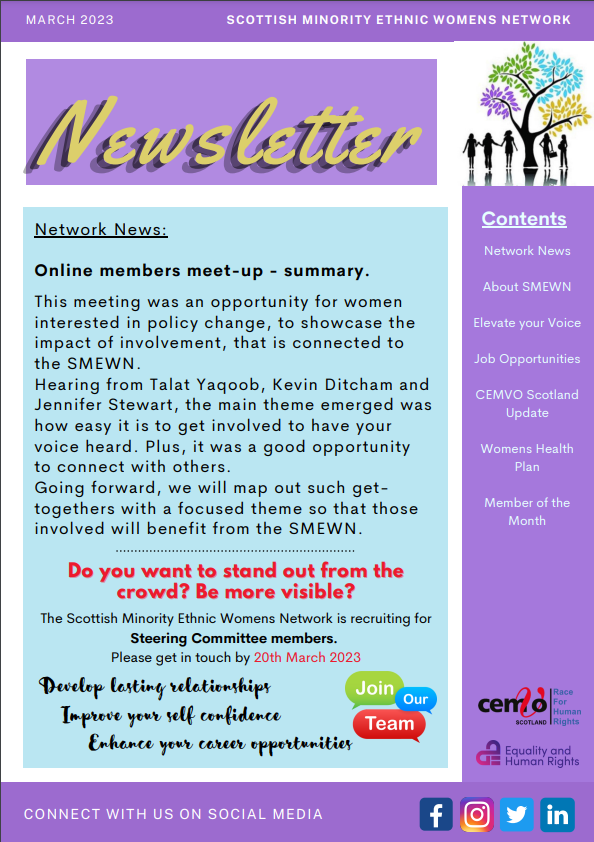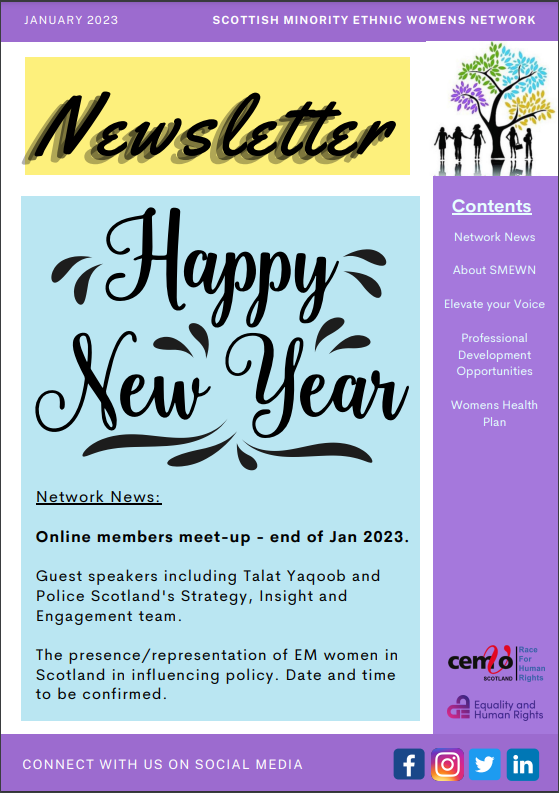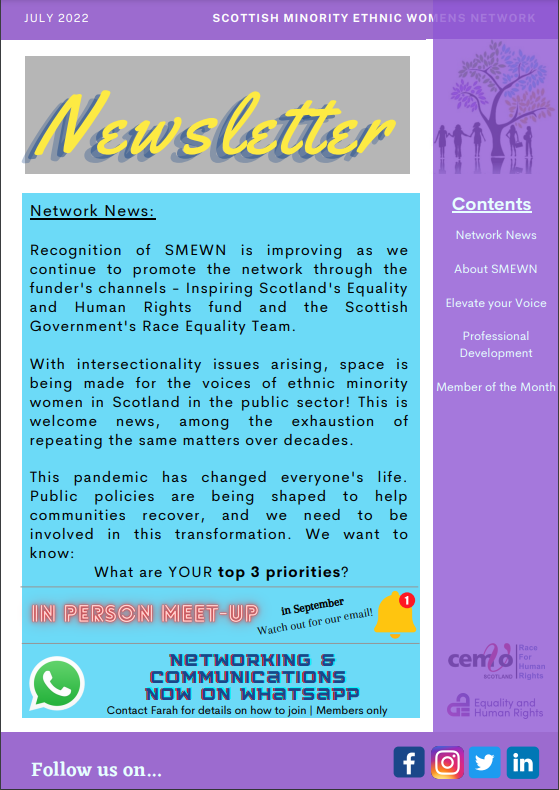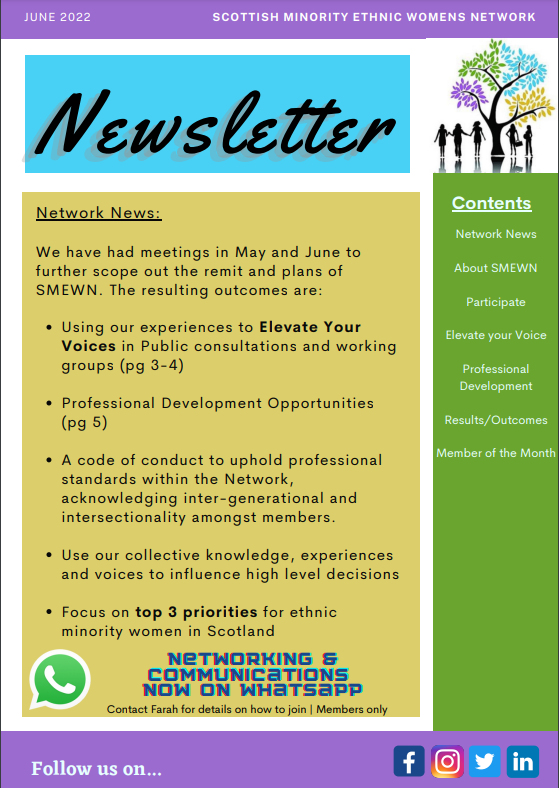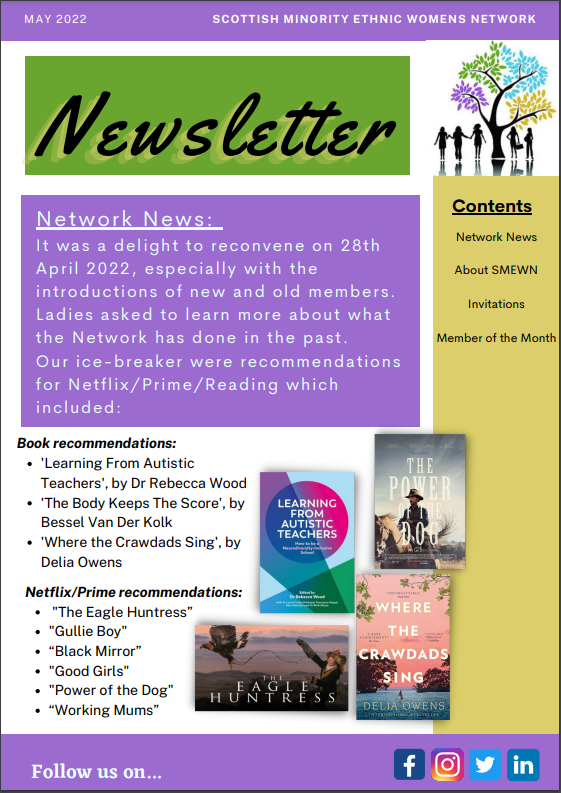About Us
In 2017 CEMVO Scotland organised a series of events to support the development of the Scottish Minority Ethnic Women’s Network (SMEWN).
Events to date have focused on employability issues affecting ethnic minority women in collaboration with The Scottish Government Equality Unit and Employability Team followed by an event with the Scottish Government Violence Against Women Unit to focus on the delivery plan for the ‘Equally Safe’ strategy, which was re-drafted following a public consultation. The event provided a “voice” that was absent from ethnic minority women to feed into the delivery plan, and further demonstrating the need for the Network to continue and build.
Over 300 ethnic minority women participated in the above events, and that progressed to the set-up of an Advisory Forum in 2018.
In June 2019 the Advisory Forum presented the following model and structure for a Network at an event that was held for participants that attended previous events:
- Aims/Values and Objectives
- Model and Structure of the Network
- Advisory Forum Members
- Membership Forms
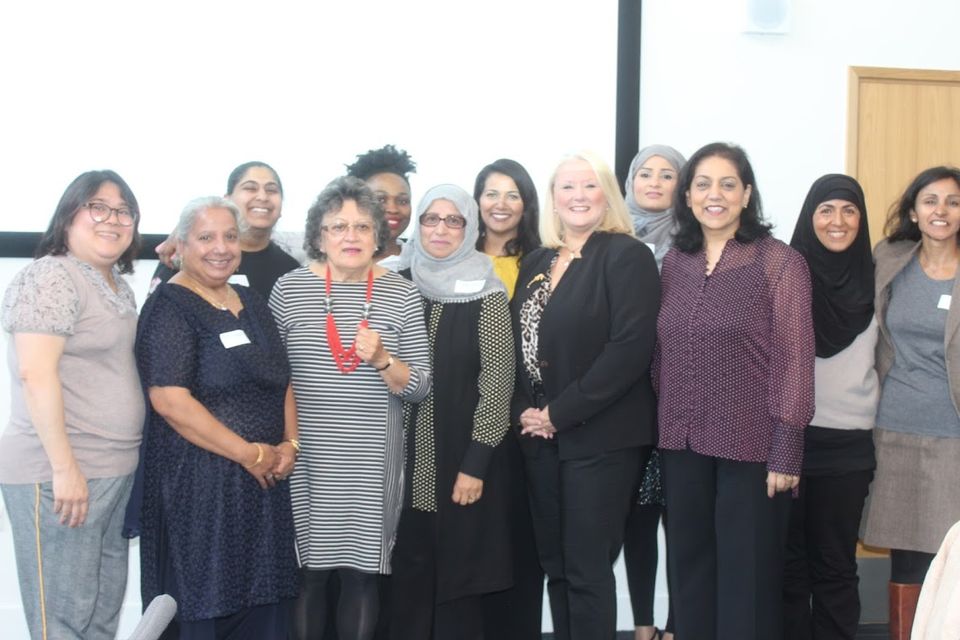
SMEWN was officially launched in October 2019 by Minister for Equalities and Older People Christina McKelvie, and was attended by over 120 women who also joined the Network boosting the membership to just under a hundred. The membership now stands at 147 and has increased its social media presence using the following social media platforms.
The Scottish Minority Ethnic Women’s Network (SMEWN) receives capacity-building support from CEMVO Scotland.
Provide a safe space for women to discuss issues that affect them
Develop a Network where women can share ideas and access support
Develop peer and mentoring support for women that need it
Be a strategic voice to influence public policy and issues affecting Ethnic Women living in Scotland.
“Let’s Break to Educate”
In the later part of 2020, the SMEWN held a series of online webinars for ethnic minority women across Scotland in 2020, ‘Lets Break to Educate’. These were safe spaces for women to discuss the following topics:
Covid 19 – What is the Information/Stories Telling Us?
Impact of Home Schooling on BME Families
Black and Minority Ethnic Women in Employment
Black Lives Matter
The themes that emerged from the four webinars can be summarised as:
- BME/Covid19 mortality rates
- engagement with EM communities less organized e.g., Sri Lankan and African communities
- access to information
- representation of BME issues on Scottish wide policy groups
- Homeschooling during lockdown was intense and challenging particularly if you were a single parent and have one or more children with additional needs.
- Lack of positive role models, racist and discriminatory practices still exist even though women of colour are ‘protected’ by equality laws.
- BME experience differences in the workplace as they face discrimination/prejudice/judgements and are stereotyped
- Discrimination/racism prevents BME women from progressing into senior roles
- BME women are not recognised for transferable/additional skills or talent
- BLM had thrown up issues for women of colour who are visible and not so visible.
- Nonvisible BME also feel targeted by overt and discreet racism because of their multi-racial identities and then begin to question their identity in relation to intersectionality. (NB. intersectionality as a stand-alone issue was not mentioned.)
- Individuals with multiple bi-racial identities and mixed ethnicities make it difficult to feel like you belong in society.
- BLM has elevated this further and finding safe places to talk about the intricacies of identity with white friends means that it does not happen leading to an increased sense of isolation.
If you would like a copy of the report, please email Farah Farzana on farahfarzana@cemvoscotland.org.uk

